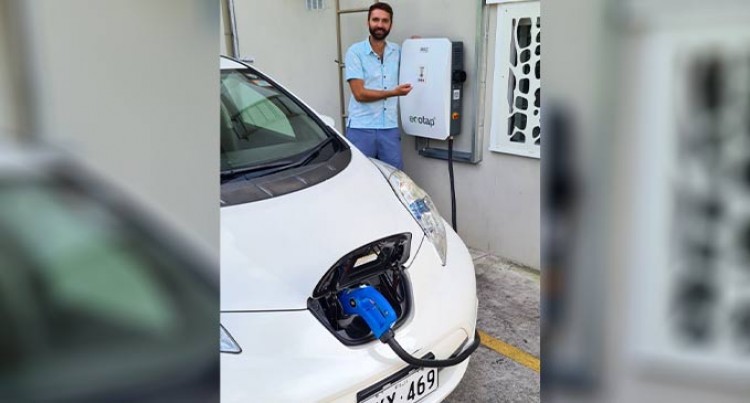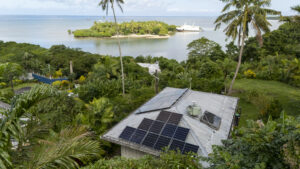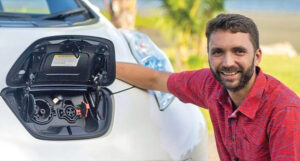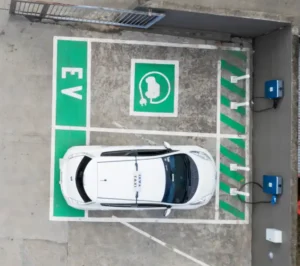E-mobility has the potential to reduce national dependence on a hugely complex, massively polluting industry with supply chains that depend on many of the world’s least stable states.
Leaf PTE Limited strategy director, Alex Reddaway, has been working across a number of sectors for the past 15 years to invest in renewable energy infrastructure.
“Fiji has long been keen on the idea of E-mobility, as there has been a lot of concern on the grid,” Mr Reddaway said.
“To address these concerns, we are looking to develop what is potentially the world’s first carbon negative charging network, installing solar charges at strategic locations to create a charger network, to produce more electricity than it consumes.
Mr Reddaway said the average driver in Fiji drives 15 kilometers per day, requiring about 3kwh of electricity.
“You can generate this amount of electricity per day, for 25 years, by installing 1 kW of solar panels on the roof of your home or office. In fact, you can fuel your next three cars by paying $3000 now.”
Target Market:
Mr Reddaway said they have three clearly defined markets.
- Retail businesses with high footfall that are interested in hosting public chargers as a way of attracting customers and playing a part in the transition to clean mobility. Anywhere that customers spend more than 20minutes(restaurants, super markets, shopping centres, marinas, etc), especially along busy travel routes. We will be prioritising locations in which we can install solar.
- Businesses that are keen to electricity their fleets. We offer financed charger installations and can offer dealer agnostic advise on switching to EVs.
- Individuals who would like to switch to EV and require domestic smart charging installations.
“Leaf ’s business is part of a wider push to simplify supply chains and reduce the impact of external economic shocks on small economies such as Fiji and the wider Pacific,”
Mr Reddaway
“While it sometimes seems absurd that a war in Europe would impact the price of petrol in Fiji, this is the reality of the globalised World in which we live.”
“Beyond the stability element, e-mobility will also impact the amount of foreign exchange that flows offshore.”
Fossil fuels account for between 15-34% of Fiji’s total imports, money that is essentially lost from the economy each year.
“Shifting these cash flows towards e-mobility and renewable energy infrastructure would have a hugely positive impact on Fiji’s long term balance of payments,” he said.
Mr Reddaway is hopeful in the next few months that government and corporate fleets will rapidly adopt the EV.
“We have already signed contracts for enough solar to offset the electricity needs of 90 cars, more than three times the current EV fleet.
Customers
Customers can refresh themselves while their car charges as we are prioritising sites that have high energy consumption and are able to absorb the excess electricity produced by our solar arrays.
“Our approach is to help partners transition to greener solutions without impacting their operational cash flows, he said.
Feedback: [email protected]




